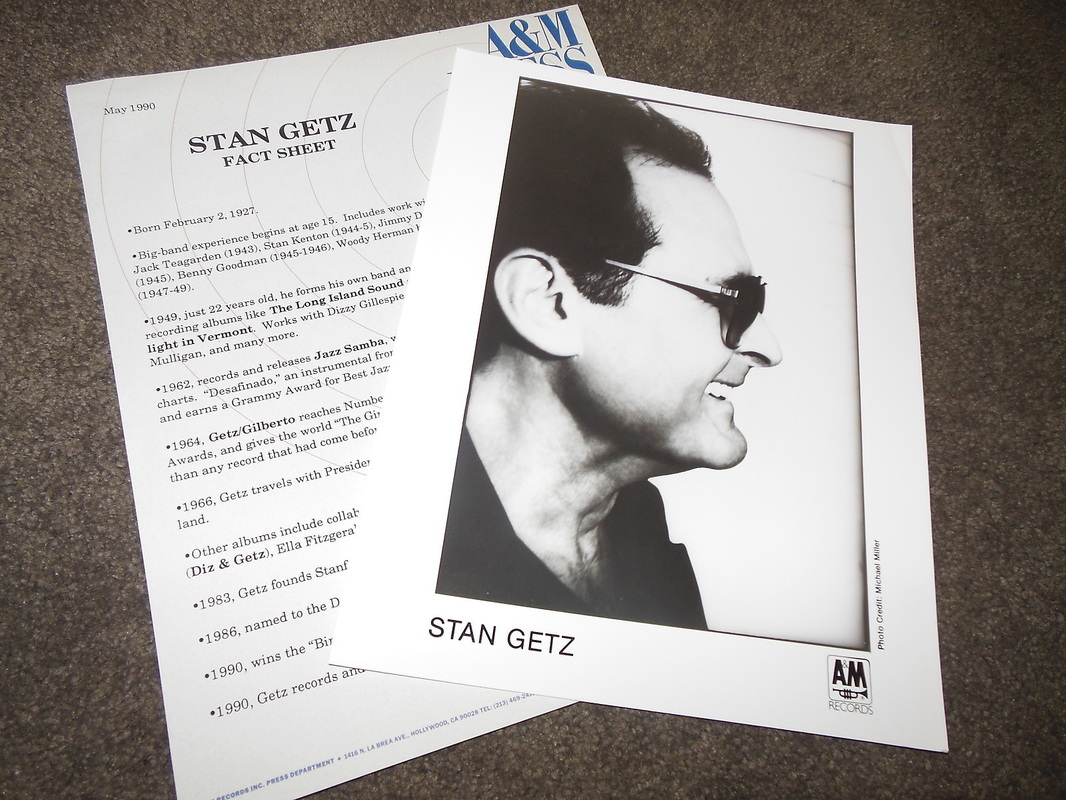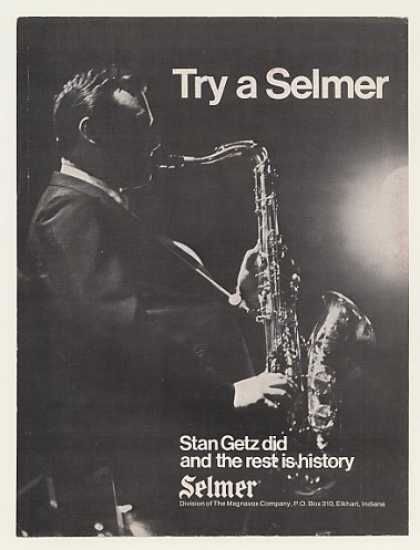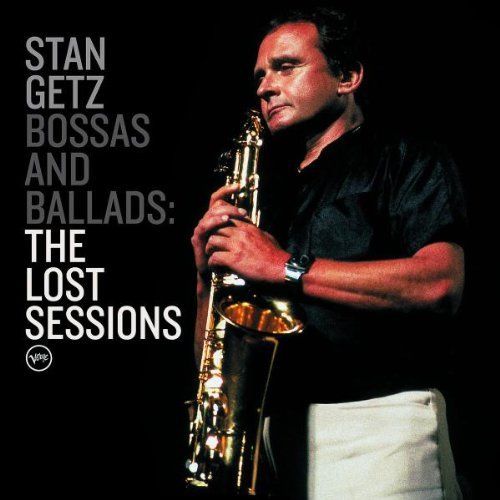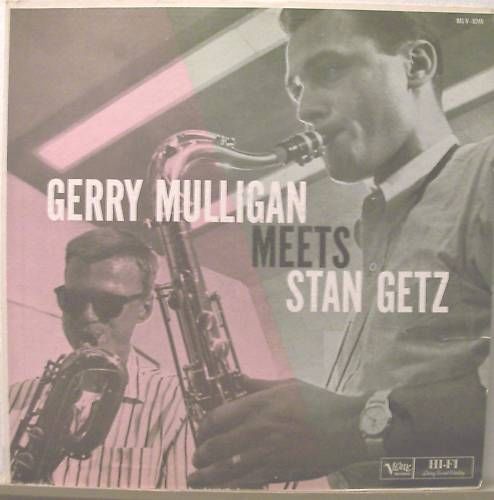|
May 14, 2020: UDiscoverMusic: Stan Getz
The jazz saxophonist from Philadelphia was renowned for his tenor saxophone playing, as well as for popularizing the bossa nova sound in the United States. April 13, 2019: Downbeat: In ’61, Stan Getz at His ‘Most Aggressive’
It’s late in fall of 1961, and tenor saxophonist Stan Getz is playing The Village Gate in New York. It’s before the bandleader would cultivate worldwide popularity and a streak of Grammy nominations for now iconic albums like Jazz Samba (1962) and Getz/Gilberto (1964), which contained one of the biggest crossover hits of all time, “The Girl From Ipanema.” April 3, 2016: The Guardian: Stan Getz: Moments in Time review – wonderfully exciting
Apreviously unissued live session dating from 1976, this is a companion piece to the Getz-Gilberto CD reviewed here a few weeks ago. In comparison with the gentle minimalism of that set, it sounds quite ferocious at times. Then approaching 50, Getz had left his suave, cool-school approach far behind, and with a fresh, energetic young band was attracting a new generation of admirers. Pianist Joanne Brackeen is outstanding. Her wide-ranging solos clearly inspire Getz to produce some wonderfully urgent and exciting improvisations, notably on Wayne Shorter’s composition Infant Eyes. Getz remarked at the time that he had never felt as free and “totally supported” as he did with Brackeen, bassist Clint Houston and drummer Billy Hart. Stan Getz Official Website
|
Feb 2, 1927: Stan Getz was born on at St. Vincent's Hospital in Philadelphia, Pennsylvania, United States
October 12, 1957: "Gerry Mulligan Meets Stan Getz" was recorded by Getz and Gerry Mulligan
Nov. 26, 1961: Getz is playing The Village Gate in New York. His quartet is in exceptional form with the saxophonist blowing uncharacteristically aggressive solos. Cole Porter’s “It’s Alright With Me” opens the set, Getz forming shapely fire as drummer Roy Haynes counterpunches his every note. Two ballads follow, before Getz introduces Miles Davis’ “So What”; oddly, what follows is a 12-minute take of John Coltrane’s “Impressions.”
Throughout two sets that night, Getz covered familiar ground, but also went for broke on “Woody ’N You,” a sparkling “Yesterday’s Gardenias,” an ascending “It’s You Or No One” and a cathartic version of “52nd Street Theme.” November 21, 1962: Brazil sent scores of musicians to Carnegie Hall as a result of the bossa nova craze created by Jazz Samba
June 6, 1991: Getz died of liver cancer. |













